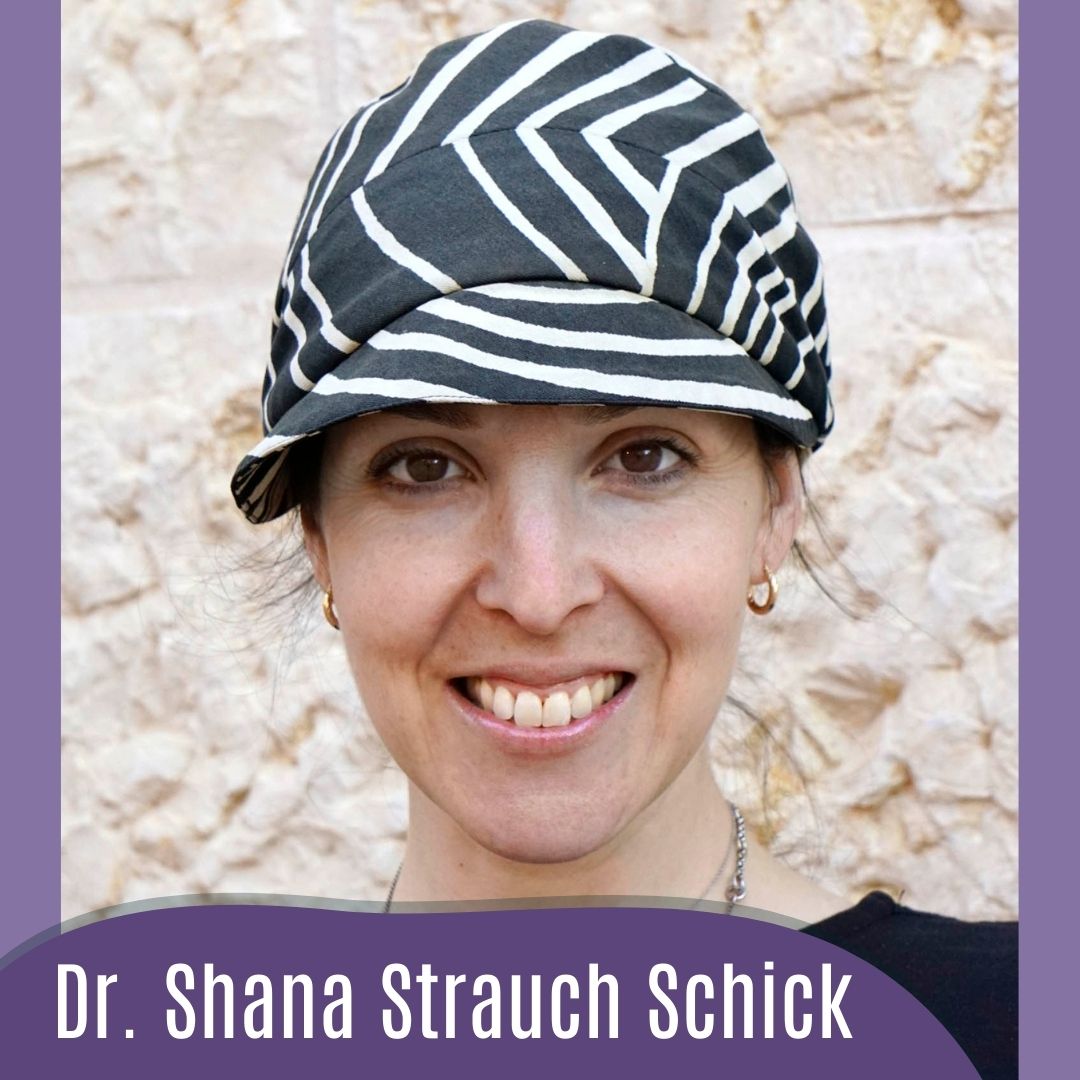Sukkah 56
תַּלְמוּד לוֹמַר: ״חֵלֶק כְּחֵלֶק יֹאכֵלוּ״, כְּחֵלֶק עֲבוֹדָה כָּךְ חֵלֶק אֲכִילָה. וּמַאי אֲכִילָה? אִילֵּימָא קׇרְבָּנוֹת, מֵהָתָם נָפְקָא: ״לַכֹּהֵן הַמַּקְרִיב אוֹתָהּ לוֹ תִהְיֶה״! אֶלָּא: לֶחֶם הַפָּנִים.
The verse states: “They shall have like portions to eat” (Deuteronomy 18:8); just as all the watches receive an equal portion of the service, so too all the watches receive an equal portion in the eating. The Gemara asks: What is the eating mentioned in this verse? If you say it is the eating of offerings, the verse is superfluous, as it is derived from there: “And every meal-offering…shall be the priest’s that offers it” (Leviticus 7:9), which, although it was written with regard to meal-offerings, applies to all offerings. Moreover, it teaches that a priest who participates in the sacrifice of the offering shares in eating the offering. Rather, the verse is referring to the shewbread that was not part of the service this Shabbat, as it was baked the previous Shabbat.
יָכוֹל אַף בְּחוֹבוֹת הַבָּאוֹת שֶׁלֹּא מֵחֲמַת הָרֶגֶל בָּרֶגֶל, תַּלְמוּד לוֹמַר: ״לְבַד מִמְכָּרָיו עַל הָאָבוֹת״ — מָה מָכְרוּ הָאָבוֹת זֶה לָזֶה, אֲנִי בְּשַׁבַּתִּי וְאַתָּה בְּשַׁבַּתֶּךָ.
One might have thought that all the watches should be equal even with regard to obligations that come not due to the Festival but are brought on the Festival nevertheless, as there were many vow-offerings and free-will offerings brought to the Temple that were not part of the Festival rite, but simply the result of people taking advantage of their presence in Jerusalem to fulfill their outstanding obligations. Therefore, the verse states: “Besides the transactions of their fathers’ houses” (Deuteronomy 18:8). What did the forefathers of each watch sell each other? They agreed with regard to the service of the watches: I will serve during my week, and you will serve during your week. Each watch has the right to perform the Temple service during its appointed weeks and to receive all priestly gifts offered during those weeks.
בָּעֲצֶרֶת אוֹמֵר לוֹ הֵילָךְ וְכוּ׳. אִיתְּמַר, רַב אָמַר: סוּכָּה, וְאַחַר כָּךְ זְמַן. רַבָּה בַּר בַּר חָנָה אָמַר: זְמַן, וְאַחַר כָּךְ סוּכָּה.
§ The mishna continues: On Shavuot that coincides with Shabbat the priest charged with the distribution says to each priest: Here is matza from the shewbread for you, and here is leavened bread from the two loaves for you. It was stated that there is a dispute between the amora’im, and Rav said: When one enters the sukka, he recites the blessing of the sukka: Who has made us holy through His mitzvot and has commanded us to sit in the sukka, and then the blessing of time: Who has given us life, sustained us, and brought us to this time. Rabba bar bar Ḥana said: One recites the blessing of time, and then the blessing of the sukka.
רַב אָמַר: סוּכָּה וְאַחַר כָּךְ זְמַן — חִיּוּבָא דְיוֹמָא עֲדִיף. רַבָּה בַּר בַּר חָנָה אָמַר: זְמַן וְאַחַר כָּךְ סוּכָּה — תָּדִיר וְשֶׁאֵינוֹ תָּדִיר תָּדִיר קוֹדֵם.
The Gemara elaborates: Rav said that one recites the blessing of sukka and then the blessing of time because the obligation of the day takes precedence. Rabba bar bar Ḥana said that one recites the blessing of time and then the blessing of the sukka because when a frequent practice and an infrequent practice clash, the frequent practice takes precedence over the infrequent practice, and the blessing of time is recited more frequently.
לֵימָא רַב וְרַבָּה בַּר בַּר חָנָה בִּפְלוּגְתָּא דְּבֵית שַׁמַּאי וּבֵית הִלֵּל קָמִיפַּלְגִי, דְּתָנוּ רַבָּנַן: דְּבָרִים שֶׁבֵּין בֵּית שַׁמַּאי וּבֵית הִלֵּל בַּסְּעוּדָה. בֵּית שַׁמַּאי אוֹמְרִים: מְבָרֵךְ עַל הַיּוֹם וְאַחַר כָּךְ מְבָרֵךְ עַל הַיַּיִן, וּבֵית הִלֵּל אוֹמְרִים: מְבָרֵךְ עַל הַיַּיִן וְאַחַר כָּךְ מְבָרֵךְ עַל הַיּוֹם.
The Gemara suggests: Let us say that Rav and Rabba bar bar Ḥana disagree in the dispute of Beit Shammai and Beit Hillel. As the Sages taught in a baraita: These are the matters of dispute between Beit Shammai and Beit Hillel with regard to the halakhot of a meal. Beit Shammai say: When one recites kiddush over wine, he recites a blessing over the sanctification of the day and then recites a blessing over the wine. And Beit Hillel say: One recites a blessing over the wine and then recites a blessing over the day.
בֵּית שַׁמַּאי אוֹמְרִים: מְבָרֵךְ עַל הַיּוֹם וְאַחַר כָּךְ מְבָרֵךְ עַל הַיַּיִן — שֶׁהַיּוֹם גּוֹרֵם לַיַּיִן שֶׁיָּבֹא, וּכְבָר קִידֵּשׁ הַיּוֹם וַעֲדַיִין יַיִן לֹא בָּא. וּבֵית הִלֵּל אוֹמְרִים: מְבָרֵךְ עַל הַיַּיִן וְאַחַר כָּךְ מְבָרֵךְ עַל הַיּוֹם — שֶׁהַיַּיִן גּוֹרֵם לְקִידּוּשָׁא שֶׁתֵּאָמֵר. דָּבָר אַחֵר: בִּרְכַּת הַיַּיִן תְּדִירָה, וּבִרְכַּת הַיּוֹם אֵינָהּ תְּדִירָה. תָּדִיר וְשֶׁאֵינוֹ תָּדִיר — תָּדִיר קוֹדֵם.
The Gemara elaborates: Beit Shammai say: One recites a blessing over the sanctification of the day and then recites a blessing over the wine, as the day causes the wine to come before the meal. And Beit Shammai offer an additional reason: The day has already been sanctified and the wine has not yet come. Since Shabbat was sanctified first, it should likewise be mentioned first. And Beit Hillel say: One recites a blessing over the wine and then recites a blessing over the day, as the wine causes the kiddush to be recited. Were there no wine, kiddush would not be recited. Alternatively, Beit Hillel say: The blessing over wine is recited frequently, and the blessing over the day is not recited frequently, and when a frequent practice and an infrequent practice clash, the frequent practice takes precedence over the infrequent practice.
לֵימָא רַב דְּאָמַר כְּבֵית שַׁמַּאי, וְרַבָּה בַּר בַּר חָנָה דְּאָמַר כְּבֵית הִלֵּל!
The Gemara suggests: Let us say that it was Rav who stated his opinion in accordance with the opinion of Beit Shammai that the blessing over the sanctification of the day takes precedence over the blessing over the wine, and it was Rabba bar bar Ḥana who stated his opinion in accordance with Beit Hillel, i.e., that the frequent blessing takes precedence.
אָמַר לְךָ רַב: אֲנָא דַּאֲמַרִי אֲפִילּוּ לְבֵית הִלֵּל. עַד כָּאן לָא קָאָמְרִי בֵּית הִלֵּל הָתָם, אֶלָּא שֶׁהַיַּיִן גּוֹרֵם לְקִידּוּשָׁא שֶׁתֵּאָמֵר; אֲבָל הָכָא — אִי לָאו זְמַן, מִי לָא אָמְרִינַן סוּכָּה!
The Gemara rejects this suggestion. Rav could have said to you: It is I who stated my opinion even in accordance with the opinion of Beit Hillel, as Beit Hillel stated their opinion there in the case of kiddush only due to the additional reason that the wine causes the kiddush to be recited. But here there is no similar connection between the two blessings, and if there was no blessing on time, wouldn’t we recite the blessing of the sukka anyway? The fact is that the blessing on the sukka is recited throughout the week of the Festival, when no blessing on time is recited.
וְרַבָּה בַּר בַּר חָנָה אָמַר לָךְ: אֲנָא דַּאֲמַרִי אֲפִילּוּ לְבֵית שַׁמַּאי. עַד כָּאן לָא אָמְרִי בֵּית שַׁמַּאי הָתָם, אֶלָּא שֶׁהַיּוֹם גּוֹרֵם לַיַּיִן שֶׁיָּבֹא; אֲבָל הָכָא — אִי לָאו סוּכָּה, מִי לָא אָמְרִינַן זְמַן!
And Rabba bar bar Ḥana could have said to you: It is I who stated my opinion even in accordance with the opinion of Beit Shammai, as Beit Shammai only stated their opinion there in the case of kiddush, and only due to the additional reason that the day causes the wine to come before the meal. However, here, if there was no blessing of sukka, wouldn’t we recite the blessing of time even without sitting in the sukka, simply due to the onset of the Festival?
תְּנַן, בָּעֲצֶרֶת אוֹמֵר לוֹ: הֵילָךְ מַצָּה, הֵילָךְ חָמֵץ. וְהָא הָכָא, דְּחָמֵץ עִיקָּר וּמַצָּה טָפֵל, וְקָתָנֵי: הֵילָךְ מַצָּה וְהֵילָךְ חָמֵץ, תְּיוּבְתָּא דְּרַב!
The Gemara cites proof from that which we learned in the mishna: On Shavuot the priest charged with the distribution of the shewbread and the two loaves says to each priest: Here is matza for you, here is leavened bread for you. But here, where the ḥametz is primary and the matza is subordinate to it, as it is the festival of Shavuot when the two loaves of leavened bread are the offering of the day, and yet the mishna teaches: Here is matza for you, and here is leavened bread for you, it accords precedence to the frequent shewbread over the obligation of the day. This is a conclusive refutation of the opinion of Rav.
אָמַר לְךָ רַב: תַּנָּאֵי הִיא. דְּתַנְיָא: הֵילָךְ מַצָּה, הֵילָךְ חָמֵץ. אַבָּא שָׁאוּל אוֹמֵר: הֵילָךְ חָמֵץ, הֵילָךְ מַצָּה.
The Gemara responds that Rav could have said to you: This matter is a dispute between tanna’im, as it is taught in a baraita that the priest charged with distribution says: Here is matza for you, here is leavened bread for you. Abba Shaul says that he would say: Here is leavened bread for you, here is matza for you.
דָּרַשׁ רַב נַחְמָן בַּר רַב חִסְדָּא: לֹא כְּדִבְרֵי רַב, דְּאָמַר: סוּכָּה, וְאַחַר כָּךְ זְמַן — אֶלָּא: זְמַן, וְאַחַר כָּךְ סוּכָּה. וְרַב שֵׁשֶׁת בְּרֵיהּ דְּרַב אִידִי אָמַר: סוּכָּה, וְאַחַר כָּךְ זְמַן. וְהִלְכְתָא: סוּכָּה, וְאַחַר כָּךְ זְמַן.
With regard to the final halakhic decision: Rav Naḥman bar Rav Ḥisda taught: The halakha is not in accordance with the statement of Rav, who said: One recites the blessing of sukka and then the blessing of time; rather, one recites the blessing of time and then the blessing of sukka. Rav Sheshet, son of Rav Idi, said: One recites the blessing of sukka and then the blessing of time, in accordance with the opinion of Rav. And the Gemara concludes that the halakha is: One recites the blessing of sukka and then the blessing of time.
מִשְׁמָר שֶׁזְּמַנּוֹ קָבוּעַ [וְכוּ׳], וּשְׁאָר קׇרְבְּנוֹת צִבּוּר. לְאֵתוֹיֵי מַאי? לְאֵתוֹיֵי פַּר הֶעְלֵם דָּבָר שֶׁל צִבּוּר וּשְׂעִירֵי עֲבוֹדָה זָרָה.
§ The mishna continues: The priestly watch whose time is scheduled during the Festival, sacrifices the daily offerings during the Festival, as well as vow-offerings, free-will offerings, and all other communal offerings. The Gemara asks: What additional communal offerings does the mishna come to include? The Gemara answers: It comes to include a bull brought for an unwitting communal sin, which is brought by the community due to a transgression committed by the community as a whole as a result of an erroneous halakhic decision issued by the Great Sanhedrin, although it has no fixed time and need not be brought during the Festival; and it includes goats brought for the unwitting transgression of the prohibition against idol worship. If these offerings are brought during the Festival, they are sacrificed by members of the watch whose shift is scheduled for that week.
וְהוּא מַקְרִיב אֶת הַכֹּל. לְאֵתוֹיֵי מַאי? לְאֵתוֹיֵי קֵייץ הַמִּזְבֵּחַ.
The mishna concludes: And that watch sacrifices all of them. The Gemara asks: What does this phrase come to include? The Gemara explains: It comes to include the summer fruits of the altar. Whenever the altar was inactive, special burnt-offerings were sacrificed as communal donations in deference to the Divine Presence so that the altar would not remain empty. These offerings were sacrificed by the scheduled watch.
מַתְנִי׳ יוֹם טוֹב הַסָּמוּךְ לַשַּׁבָּת, בֵּין מִלְּפָנֶיהָ בֵּין לְאַחֲרֶיהָ — הָיוּ כׇּל הַמִּשְׁמָרוֹת שָׁווֹת בְּחִילּוּק לֶחֶם הַפָּנִים. חָל לִהְיוֹת יוֹם אֶחָד [לְהַפְסִיק] בֵּינָתַיִם — מִשְׁמָר שֶׁזְּמַנּוֹ קָבוּעַ הָיָה נוֹטֵל עֶשֶׂר חַלּוֹת, וְהַמִּתְעַכֵּב נוֹטֵל שְׁתַּיִם. וּבִשְׁאָר יְמוֹת הַשָּׁנָה — הַנִּכְנָס נוֹטֵל שֵׁשׁ, וְהַיּוֹצֵא נוֹטֵל שֵׁשׁ. רַבִּי יְהוּדָה אוֹמֵר: הַנִּכְנָס נוֹטֵל שֶׁבַע, וְהַיּוֹצֵא נוֹטֵל חָמֵשׁ.
MISHNA: In the case of a Festival that occurs adjacent to Shabbat, both when it occurs preceding it and when it occurs following it, all the watches that arrived early or remained late to serve in the Temple were of equal status in the distribution of the shewbread on that Shabbat. If one day happened to separate between the Festival and Shabbat, the watch whose time was scheduled would take ten of the twelve loaves of shewbread, and the watch that was detained after the Festival because there was insufficient time to get home before Shabbat takes two loaves. And during the rest of the days of the year, when the changing of the watches takes place on Shabbat, the incoming watch takes six loaves and the outgoing watch takes six loaves. Rabbi Yehuda says: The incoming watch takes seven loaves and the outgoing takes five.
הַנִּכְנָסִין חוֹלְקִין בַּצָּפוֹן, וְהַיּוֹצְאִין בַּדָּרוֹם. בִּילְגָּה לְעוֹלָם חוֹלֶקֶת בַּדָּרוֹם, וְטַבַּעְתָּהּ קְבוּעָה, וְחַלּוֹנָהּ סְתוּמָה.
The standard procedure was that the members of the incoming watch divide the shewbread in the north section of the courtyard, and the outgoing watch in the south. However, there was one exception: The watch of Bilga, due to a penalty imposed upon it, always divides the shewbread to its members in the south, even when it is the incoming watch. And its ring used to facilitate slaughter of the animals was fixed in place, rendering it useless, and its niche among the niches in the wall of the Chamber of Knives, where the priests would store their knives and other vessels, was sealed.
גְּמָ׳ מַאי מִלְּפָנֶיהָ וּמַאי מִלְּאַחֲרֶיהָ? אִילֵימָא: לְפָנֶיהָ — יוֹם טוֹב רִאשׁוֹן, לְאַחֲרֶיהָ — יוֹם טוֹב אַחֲרוֹן, הַיְינוּ שַׁבָּת שֶׁבְּתוֹךְ הֶחָג.
GEMARA: The Gemara asks: What is the meaning in the mishna of preceding it and what is the meaning of following it? If we say preceding it is referring to the first Festival day preceding Shabbat and following it is referring to the last day of the Festival following Shabbat, then this is the case of Shabbat that is during the Festival, and that is how the mishna should have presented it.
אֶלָּא: לְפָנֶיהָ — יוֹם טוֹב אַחֲרוֹן. לְאַחֲרֶיהָ — יוֹם טוֹב רִאשׁוֹן. מַאי טַעְמָא — כֵּיוָן דְּהָנֵי מְקַדְּמִי וְהָנֵי מְאַחֲרִי, תַּקִּינוּ רַבָּנַן מִילְּתָא כִּי הֵיכִי דְּנֵיכְלוּ בַּהֲדֵי הֲדָדֵי.
Rather, preceding it is referring to the last day of the Festival that precedes Shabbat and following it is referring to the first Festival day that follows Shabbat. What is the reason that the watches share equally in these cases? Since these are coming early, as the arriving watch cannot arrive after Shabbat because the Festival begins right away, and these remain late, as the outgoing watch cannot leave at the end of the Festival due to the immediate onset of Shabbat, the Sages instituted this matter so that they would eat the shewbread together.
חָל יוֹם אֶחָד.
The mishna continues: If one day happened. During the rest of the days of the year, the incoming watch takes six loaves and the outgoing watch takes six loaves. Rabbi Yehuda says: The incoming watch takes seven loaves and the outgoing takes five.
וְהָנֵי תַּרְתֵּי מַאי עֲבִידְתַּיְיהוּ? אָמַר רַבִּי יִצְחָק: בִּשְׂכַר הַגָּפַת דְּלָתוֹת. וְנֵימָא לֵיהּ דַּל בְּדַל! אָמַר אַבָּיֵי: בּוּצִינָא טָבָא מִקָּרָא.
The Gemara asks: And these two extra loaves received by the incoming watch, what is their purpose? Rabbi Yitzḥak says: They are as compensation for locking the doors of the Temple. The Gemara asks: Let the outgoing watch say to the incoming one: Remove your claim to the extra loaves this week and divide the loaves equally and next week’s incoming watch will remove its claim next week. Abaye said: A ripe cucumber now is better than a gourd that has yet to ripen. A small, immediate profit is preferable to a large, potential profit.
אָמַר רַב יְהוּדָה: וּבַמּוּסָפִין חוֹלְקִין. מֵיתִיבִי: מִשְׁמָרָה הַיּוֹצֵאת עוֹשָׂה תָּמִיד שֶׁל שַׁחַר וּמוּסָפִין, מִשְׁמָרָה הַנִּכְנֶסֶת עוֹשָׂה תָּמִיד שֶׁל בֵּין הָעַרְבַּיִם וּבָזִיכִין — וְאִילּוּ ״מוּסָפִין חוֹלְקִין״ לָא קָתָנֵי! הַאי תַּנָּא בַּחֲלוּקָּה לָא קָא מַיְירֵי.
Rav Yehuda said: And they divide the hides of the additional offerings between them. The Gemara raises an objection from a baraita: The outgoing watch performs the rite of the daily morning offering and the additional offerings, and the incoming watch performs the rite of the daily afternoon offering and the service of the vessels of frankincense for the shewbread. And the baraita teaches nothing about dividing the hides of the additional offerings. The Gemara answers: This tanna is not speaking of division of the hides, but is addressing the division of the Temple service, so sharing the hides is not mentioned.
אָמַר רָבָא: וְהָא תָּנָא דְּבֵי שְׁמוּאֵל, דְּמַיְירִי בַּחֲלוּקָּה, וּ״בַמּוּסָפִין חוֹלְקִין״ לָא קָתָנֵי? דְּתָנָא דְּבֵי שְׁמוּאֵל: מִשְׁמָרָה הַיּוֹצֵאת עוֹשָׂה תָּמִיד שֶׁל שַׁחַר וּמוּסָפִין, מִשְׁמָרָה הַנִּכְנֶסֶת עוֹשָׂה תָּמִיד שֶׁל בֵּין הָעַרְבַּיִם וּבָזִיכִין. אַרְבָּעָה כֹּהֲנִים הָיוּ נִכְנָסִין שָׁם. שְׁנַיִם מִמִּשְׁמָרָה זוֹ, וּשְׁנַיִם מִמִּשְׁמָרָה זוֹ, וְחוֹלְקִין לֶחֶם הַפָּנִים. וְאִילּוּ ״בַּמּוּסָפִין חוֹלְקִין״ לָא קָתָנֵי! תְּיוּבְתָּא דְרַב יְהוּדָה! תְּיוּבְתָּא.
Rava said: But didn’t the tanna of the school of Shmuel, who speaks of division between the incoming and the outgoing watches, fail to teach division of the hides of the additional offerings mentioned by Rabbi Yehuda, as the school of Shmuel taught: The outgoing watch performs the daily morning offering and the additional offerings; the incoming watch performs the daily afternoon offerings and the service of the vessels. And how was this service performed? Four priests would enter the Sanctuary, two from this outgoing watch and two from that incoming watch, and they divide the shewbread. But it teaches nothing about dividing the hides of the additional offerings. The Gemara suggests: This is a conclusive refutation of the opinion of Rav Yehuda. The Gemara concludes: Indeed, it is a conclusive refutation.
הַנִּכְנָסִין חוֹלְקִין בַּצָּפוֹן. תָּנוּ רַבָּנַן: הַנִּכְנָסִין חוֹלְקִין בַּצָּפוֹן — כְּדֵי שֶׁיֵּרָאוּ שֶׁהֵן נִכְנָסִין, וְהַיּוֹצְאִין חוֹלְקִין בַּדָּרוֹם — כְּדֵי שֶׁיֵּרָאוּ שֶׁהֵן יוֹצְאִין.
§ The mishna continues: Members of the incoming watch divide the shewbread in the north section of the courtyard, and members of the outgoing watch in the south. The Sages taught in a baraita: Members of the incoming watch divide the shewbread in the north, which was an area of greater sanctity in the Temple courtyard, so that it would be seen that they are incoming, and members of the outgoing watch divide the shewbread in the south, so it would be seen that they are outgoing.
בִּילְגָּה לְעוֹלָם חוֹלֶקֶת בַּדָּרוֹם. תָּנוּ רַבָּנַן: מַעֲשֶׂה בְּמִרְיָם בַּת בִּילְגָּה שֶׁהֵמִירָה דָּתָהּ, וְהָלְכָה וְנִשֵּׂאת לְסַרְדְּיוֹט אֶחָד מִמַּלְכֵי יְווֹנִים. כְּשֶׁנִּכְנְסוּ יְווֹנִים לַהֵיכָל, הָיְתָה מְבַעֶטֶת בְּסַנְדָּלָהּ עַל גַּבֵּי הַמִּזְבֵּחַ, וְאָמְרָה: לוֹקוּס לוֹקוּס! עַד מָתַי אַתָּה מְכַלֶּה מָמוֹנָן שֶׁל יִשְׂרָאֵל וְאִי אַתָּה עוֹמֵד עֲלֵיהֶם בִּשְׁעַת הַדְּחָק! וּכְשֶׁשָּׁמְעוּ חֲכָמִים בַּדָּבָר, קָבְעוּ אֶת טַבַּעְתָּהּ וְסָתְמוּ אֶת חַלּוֹנָהּ.
We learned in the mishna that Bilga always divides the shewbread in the south, even when it is the incoming watch. The Gemara elaborates: The Sages taught in a baraita: There was an incident involving Miriam, the daughter of a member of the Bilga watch, who apostatized and went and married a soldier [sardeyot] serving in the army of the Greek kings. When the Greeks entered the Sanctuary, she entered with them and was kicking with her sandal on the altar and said: Wolf, wolf [lokos], until when will you consume the property of the Jewish people, and yet you do not stand with them when they face exigent circumstances? And after the victory of the Hasmoneans over the Greeks, when the Sages heard about this matter and how she denigrated the altar, they fixed the ring of the Bilga watch in place, rendering it nonfunctional, and sealed its niche.
וְיֵשׁ אוֹמְרִים: מִשְׁמַרְתּוֹ שׁוֹהָה לָבֹא, וְנִכְנַס יֶשֶׁבָב אָחִיו עִמּוֹ וְשִׁימֵּשׁ תַּחְתָּיו. אַף עַל פִּי שֶׁשְּׁכֵינֵי הָרְשָׁעִים לֹא נִשְׂתַּכְּרוּ, שְׁכֵינֵי בִילְגָּה — נִשְׂתַּכְּרוּ, שֶׁבִּילְגָּה לְעוֹלָם חוֹלֶקֶת בַּדָּרוֹם, וְיֶשֶׁבָב אָחִיו בַּצָּפוֹן.
And some say that the watch was penalized for a different reason. It happened once that some members of the Bilga watch tarried in arriving at the Temple. The members of the previous watch, the watch of Yeshevav, his brother, entered together with the members of the Bilga watch who had arrived, and served in the place of the absent members of his brother’s watch. The Gemara notes: Although neighbors of the wicked do not typically profit, according to the principle: Woe unto the wicked, woe unto his neighbor, Bilga’s neighbors profited, as Bilga always divides the shewbread in the south, even when the watch is incoming, and his brother Yeshevav always divides in the north, even when the watch is outgoing.
בִּשְׁלָמָא לְמַאן דְּאָמַר מִשְׁמַרְתּוֹ שׁוֹהָה לָבֹא, הַיְינוּ דְּקָנְסִינַן לְכוּלַּהּ מִשְׁמָרָה. אֶלָּא לְמַאן דְּאָמַר מִרְיָם בַּת בִּילְגָּה שֶׁהֵמִירָה דָתָה, מִשּׁוּם בְּרַתֵּיה קָנְסִינַן לֵיהּ לְדִידֵיהּ? אָמַר אַבָּיֵי: אִין, כִּדְאָמְרִי אִינָשֵׁי: שׁוּתָא דְיָנוֹקָא בְּשׁוּקָא, אוֹ דַאֲבוּהַּ אוֹ דְאִימֵּיהּ.
The Gemara clarifies: Granted, according to the one who said that Bilga was penalized because members of his watch tarried in arriving at the Temple; that is why the entire watch is penalized. However, according to the one who said it is due to Miriam, daughter of Bilga, who apostatized, do we penalize the entire watch of Bilga because of his daughter? Abaye said: Yes, as people say, the speech of a child in the marketplace is learned either from that of his father or from that of his mother. Miriam would never have said such things had she not heard talk of that kind in her parents’ home.
וּמִשּׁוּם אֲבוּהּ וְאִימֵּיהּ קָנְסִינַן לְכוּלַּהּ מִשְׁמָרָה? אָמַר אַבָּיֵי: אוֹי לָרָשָׁע אוֹי לִשְׁכֵינוֹ, טוֹב לַצַּדִּיק טוֹב לִשְׁכֵינוֹ [שֶׁנֶּאֱמַר: ״אִמְרוּ צַדִּיק כִּי טוֹב כִּי פְרִי מַעַלְלֵיהֶם יֹאכֵלוּ״].
The Gemara asks: And due to Miriam’s father and mother, do we penalize an entire watch? Abaye said: Woe unto the wicked, woe unto his neighbor. To conclude the tractate on a positive note, the Gemara says: Good for the righteous, good for his neighbor, as it is stated: “Say you of the righteous that it shall be good for him, for they shall eat the fruit of their doings” (Isaiah 3:10); the neighbors of a righteous man who witness and acknowledge the good that befalls him will benefit from their proximity to him.
הֲדַרַן עֲלָךְ הֶחָלִיל וּסְלִיקָא לַהּ מַסֶּכֶת סוּכָּה
























